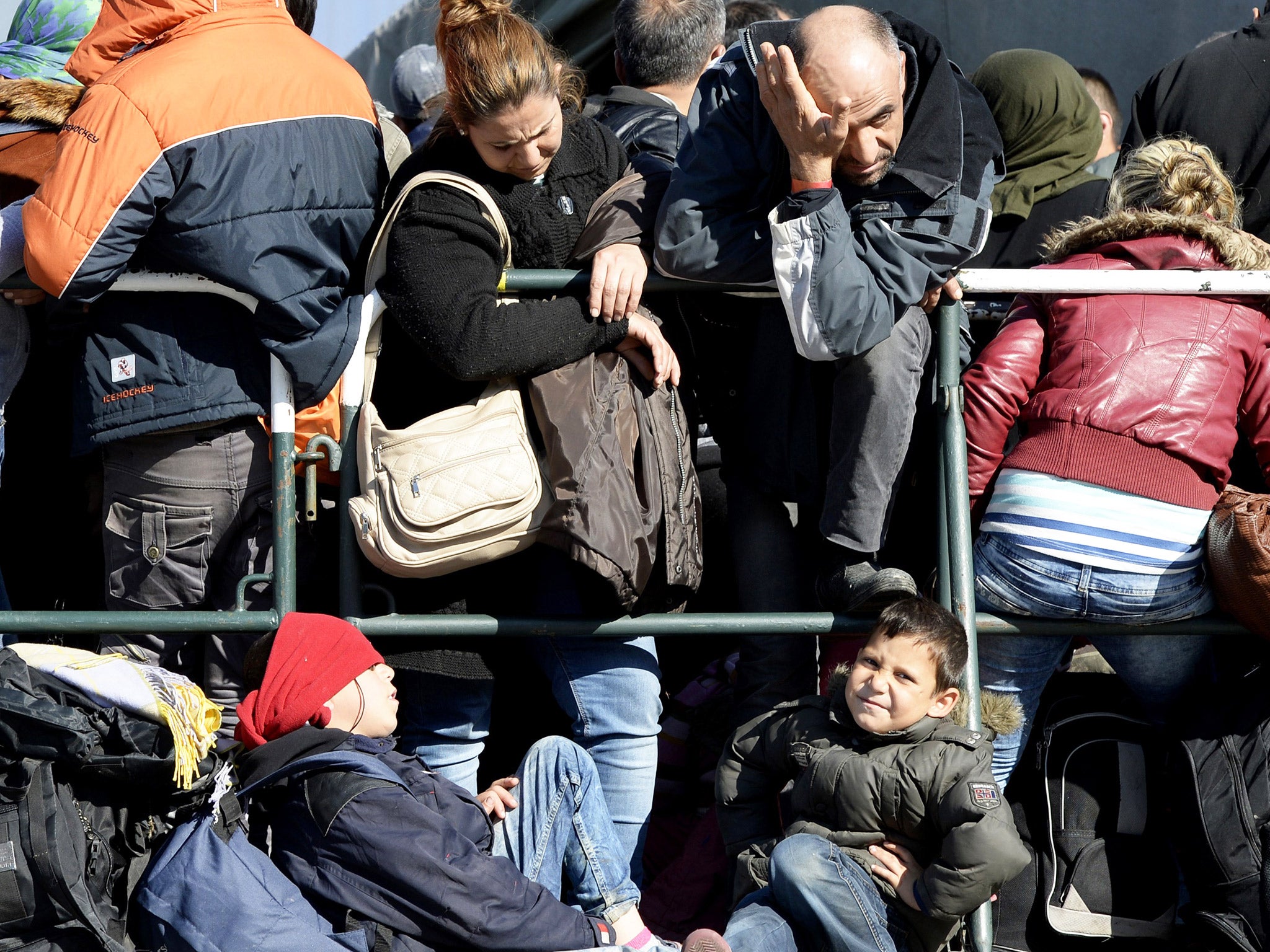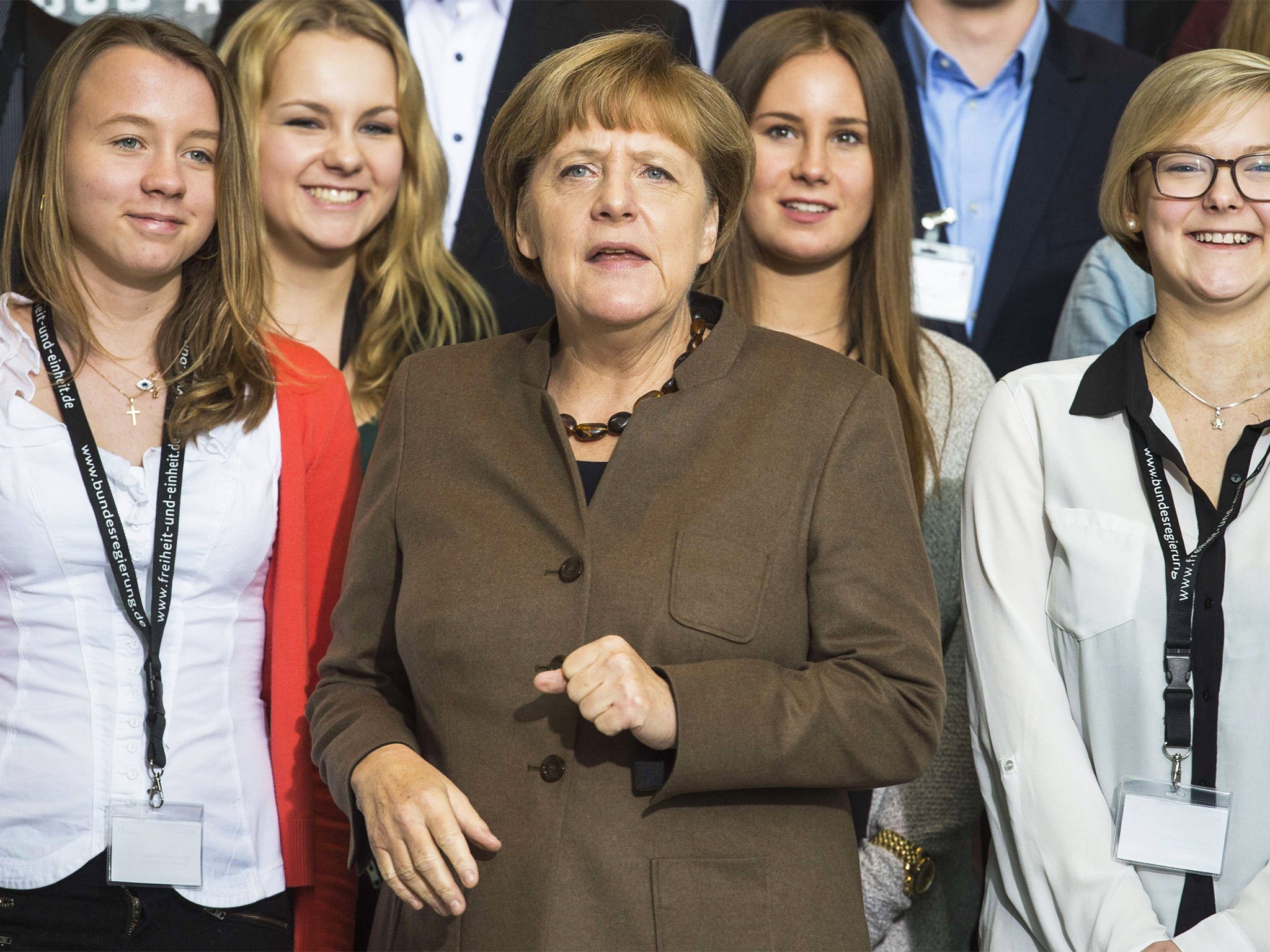Refugee crisis: Angela Merkel’s transit zones ‘are like concentration camps,’ say opposition MPs
710,000 migrants have arrived in Germany so far this year

Chancellor Angela Merkel’s plans for controversial border “transit zones” to slow the pace of refugees entering Germany has bitterly divided her ruling coalition – and opposition MPs have likened them to frontier “concentration camps” for unwanted migrants.
The proposal for zones from which Germany could speedily repatriate unwanted economic migrants to “safe” countries were proposed by Ms Merkel’s interior minister, Thomas de Maiziere, and the head of her new migrant crisis unit, Peter Altmaier, at the weekend.
The transit zones are seen as an attempt to convince an increasingly nervous German public that after weeks of apparent indecision, Ms Merkel’s government has come up with workable proposals to slow down a refugee influx predicted to exceed one million by the end of this year. Some 40 per cent of those entering Germany prove to be economic refugees, from countries such as Albania.
Bavaria, which has borne the brunt of refugee arrivals, has been at the forefront of demands for transit zones.

The proposal came against a backdrop of rising anger on the right, with a rebirth of Germany’s xenophobic Pegida (Patriotic Europeans Against Islamisation of the West) movement. On Monday 9,000 supporters held an anti-refugee rally in the movement’s home city of Dresden. Protesters brandished makeshift “gallows” with “nooses reserved” for Ms Merkel and her deputy, Sigmar Gabriel.
On Tuesday, the EU’s border agency reported that 170,000 migrants had been detected entering in September, down slightly from the record 190,000 in August but bringing this year’s total recorded influx to 710,000 so far.
But the likelihood of the German zones ever being realised has dimmed significantly. Heiko Maas, Germany’s Social Democrat justice minister, said he opposed the idea. Warning of legal complications, he said the proposal would create “mass camps in no-man’s land”. Yasmin Fahimi, his party’s general secretary, said the plan was “unworkable.” The opposition Free Democrat politician Wolfgang Kubcicki said the transit zones would amount to de facto “concentration camps.”
The idea was also denounced by Wolfgang Nescovic, a former high court judge. He told Berlin’s Inforadio news station that the plan was incompatible with the Schengen agreement on free movement, which envisaged that such transit zones would be confined to the EU’s external frontiers. “Politically the idea is a failure at birth,” he said.
Horst Seehofer, Bavaria’s right-wing conservative leader, said he still backed the idea. Ms Merkel has herself been obliged to admit that the transit zones would only work in certain cases .
She has declined to set an upper limit for the number of refugees her government is prepared to accept, maintaining Germany can cope with the influx. She says the issue needs to be addressed by the rest of Europe and in the Middle East. On Sunday she will visit Turkey to seek Ankara’s assistance in overcoming the crisis.
Join our commenting forum
Join thought-provoking conversations, follow other Independent readers and see their replies
Comments
Bookmark popover
Removed from bookmarks